Discover the Health Benefits of Indian Herbs: 7 You Should Add to Your Diet for a Vibrant Life!
Namaste, readers! In the colourful tapestry of Indian culture, herbs hold a special place. Beyond adding flavour
to our delicious dishes, they offer a treasure trove of health benefits. For centuries, Ayurveda, the ancient Indian system of medicine, has extolled the virtues of these natural wonders.
Today, we'll explore seven such herbs that you can easily incorporate into your daily diet to boost your well-being, fight diseases, and live a healthier life. These herbs are easily available in local markets and even online.
Tulsi (Holy Basil): The Queen of Herbs
Tulsi, often referred to as the "Queen of Herbs," is revered in India for its medicinal and spiritual properties. Most Indian households have a Tulsi plant and it is a common saying that a house with Tulsi plant hardly falls sick.
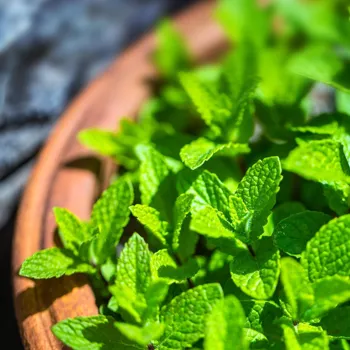
This aromatic herb is packed with antioxidants and anti-inflammatory compounds. Chewing a few Tulsi leaves every morning can help boost your immunity, fight infections, and relieve stress. Tulsi is also known to be effective in managing respiratory problems like cough and cold.
You can add Tulsi leaves to your tea or make a refreshing herbal concoction by boiling them in water. It can also help in reducing blood sugar level, so it is beneficial for diabetic patients. The herb also helps in managing cholesterol level.
Tulsi strengthens your body’s natural defenses against illness, making you more resistant to common ailments. Remember to wash the leaves thoroughly before consumption to remove any dirt or impurities. Regular consumption improves skin health by reducing acne and blemishes.
Tulsi is a natural cleanser, purifying your blood and helping maintain healthy skin.
Ashwagandha: The Strength of a Horse
Ashwagandha, meaning "smell of the horse" in Sanskrit, is an adaptogenic herb, meaning that it helps the body adapt to stress. It is widely used in Ayurvedic medicine to promote overall health and vitality.

Ashwagandha helps to reduce stress and anxiety, improve sleep quality, and boost energy levels. It is also believed to enhance cognitive function and memory. You can find Ashwagandha in powder form, capsules, or liquid extracts.
Add Ashwagandha powder to your milk or smoothie for a nourishing and revitalizing drink. It is an energy booster specially for older adults. Ashwagandha also builds up the immunity power of the body that helps to fight against disease.
It is also believed that ashwagandha helps in building up the muscles and it is for this reason that sports professionals also prefer to consume it. Consuming ashwagandha with milk is a common and effective way to reap its benefits.
Always consult with a healthcare professional before starting any new herbal supplement, especially if you have any underlying health conditions.
Turmeric (Haldi): The Golden Spice
Turmeric, the vibrant yellow spice commonly used in Indian cooking, is a powerhouse of health benefits. Its active compound, curcumin, has potent anti-inflammatory and antioxidant properties.
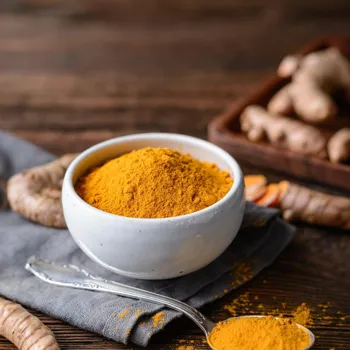
Turmeric helps to reduce inflammation in the body, relieve joint pain, and protect against chronic diseases like heart disease and cancer. Add turmeric to your curries, soups, and vegetables for a flavourful and healthy boost.
You can also make "haldi doodh" (turmeric milk) by adding a pinch of turmeric powder to warm milk. Turmeric’s anti-inflammatory properties are particularly beneficial for people suffering from arthritis and other inflammatory conditions.
It helps reduce pain and swelling, improving mobility and quality of life. Consuming turmeric regularly can help protect your body from the harmful effects of free radicals.
Curcumin’s antioxidant properties neutralize these free radicals, preventing cellular damage that can lead to chronic diseases.
Ginger (Adrak): The Warming Root
Ginger, a pungent and warming spice, is a staple in Indian households. It is known for its powerful anti-inflammatory and digestive properties. Ginger helps to relieve nausea, vomiting, and indigestion. It can also help to reduce muscle pain and soreness.
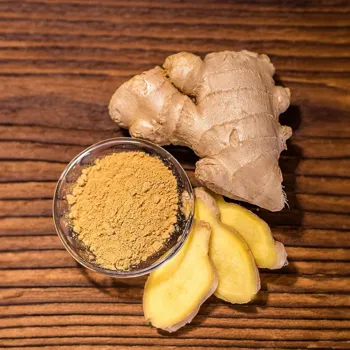
Add ginger to your tea, soups, and stir-fries for a flavourful and healthy kick. You can also chew on a small piece of ginger to relieve nausea or indigestion. Ginger is particularly helpful for pregnant women experiencing morning sickness.
It helps to soothe the stomach and reduce feelings of nausea and vomiting. The anti-inflammatory properties of ginger can help reduce pain and swelling, particularly in muscles and joints. It is a natural remedy for arthritis and other inflammatory conditions.
Ginger also strengthens the immune system and boosts immunity.
Garlic (Lahsun): The Stinking Rose
Garlic, known for its pungent aroma and flavour, is also a powerful medicinal herb. It contains allicin, a compound with potent antibacterial, antiviral, and antifungal properties. Garlic helps to boost your immunity, lower blood pressure, and improve cholesterol levels.
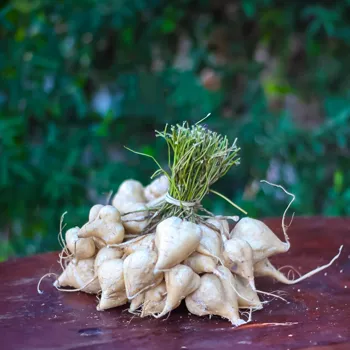
Add garlic to your curries, soups, and sauces for a flavourful and healthy boost. You can also consume raw garlic cloves for maximum benefit. Garlic also helps blood thinning and is good for heart ailments.
Garlic should be mashed nicely before it is consumed to improve the release of Allicin and its bioavailability. Consuming garlic strengthens the immune system and protects against infections.
Garlic’s antibacterial and antiviral properties make it a powerful natural remedy for colds, flu, and other respiratory illnesses. It is also known to have anti-cancer properties and helps support in overall health and well-being.
Cumin (Jeera): The Earthy Spice
Cumin, a warm and earthy spice, is commonly used in Indian cooking. It is rich in iron and helps to improve digestion. Cumin helps to relieve bloating, gas, and constipation. It can also help to boost your metabolism and promote weight loss.
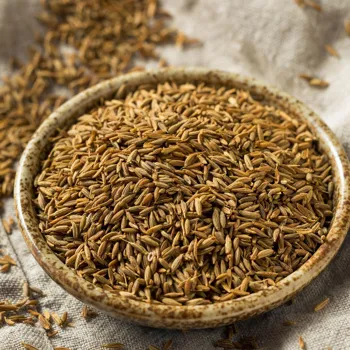
Add cumin to your curries, rice dishes, and soups for a flavourful and healthy touch. You can also roast cumin seeds and add them to your yogurt or salad. This spice can also help diabetic patients to control their blood sugar levels.
Cumin is effective in relieving bloating and other digestive discomforts. It helps to stimulate the production of digestive enzymes, improving nutrient absorption and reducing digestive problems. So those with issues like indigestion, should definitely include cumin in their daily diet.
The iron content helps reduce fatigue.
Coriander (Dhaniya): The Fresh Herb
Coriander, a fresh and aromatic herb, is widely used in Indian cuisine as a garnish and flavouring agent. It is rich in vitamins and minerals. Coriander helps to lower blood sugar levels, improve digestion, and reduce inflammation.

It contains many ingredients that help the body function effectively. Add chopped coriander leaves to your curries, salads, and chutneys for a flavourful and healthy boost. You can also make a refreshing coriander chutney by blending coriander leaves with green chilies, ginger, and lemon juice.
Coriander helps to improve digestion by stimulating the production of digestive enzymes. Coriander is a natural detoxifier, it helps to remove toxins from the body, promoting overall health and well-being. Regular consumption not only improves skin but also hair health.
Incorporating these seven Indian herbs into your diet is a simple and effective way to boost your health and well-being. Remember to consult with a healthcare professional before starting any new herbal supplement, especially if you have any underlying health conditions.
Stay healthy and stay blessed!
AI Generated Content. Glance/InMobi shall have no liability for the content



















